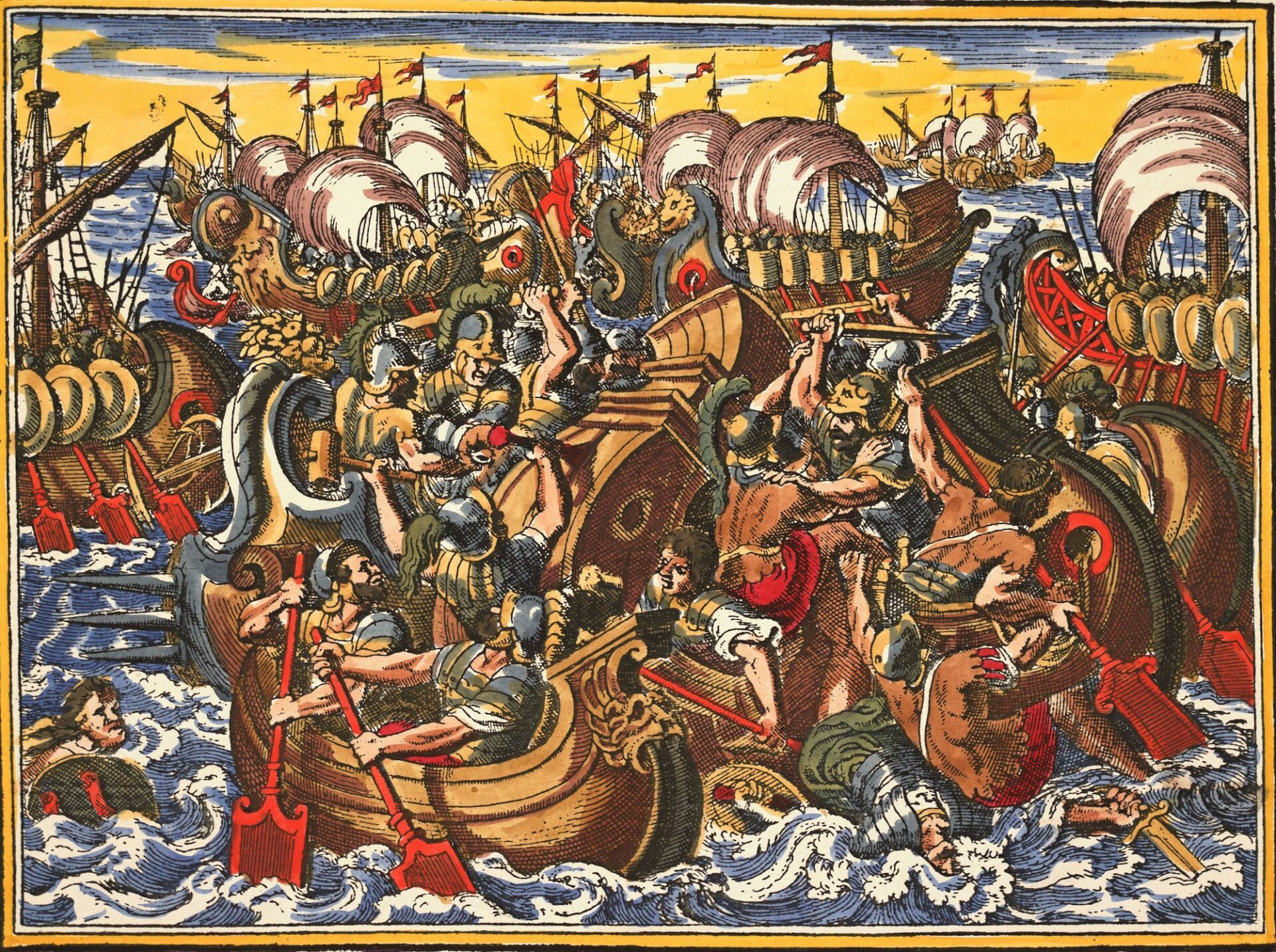The First Fifteen Years, 431-416 B. C. A growing number of incidents in which Athenians ruthlessly asserted their power alarmed the Spartans; if they did not fight soon, they feared. they might not be able to win. They tried to force the Athenians to make concessions, but Pericles, with the support of the assembly, said only that Athens would consent CO have all disputed questions arbitrated.
In 431 began the ruinous Second Peloponnesian War (431-404 B.C.). The Spartans invaded Attica to force a military decision. Pericles countered by withdrawing the entire population within Athens’s city walls, which had been extended to include the suburbs and to give access to the sea. He intended to avoid pitched battles with the superior Spartan troops on land and to go on the offensive at sea, launching seaborne raids against enemy territory and inviting naval battles.
Though these tactics worked well in the first year of the war, in 430 plague broke out in Athens, where the population of Attica was cooped up with little sanitation. Pericles died of it in 429, leaving Athens without a trusted leader who could make unpopular but necessary policies acceptable. The plague raged until the end of 426 and cost Athens about a third of its population, including its best troops. It did not deter the Athenians from continuing the war under Cleon, however.
By 424 Athens could probably have ended the war on favorable terms, and the upper and the middle classes, which had suffered most from it, were eager for peace. It was their lands in Attica that the Spartans ravaged and their members who made up most of the land forces that did the heavy fighting. But the working classes, who identified with the fleet, hoped for even greater gains and wanted to continue the war. Since they now dominated the city’s politics, the war went on.
Not until 421 could the peace party negotiate the Peace of Nicias (so called after its leader) and terminate this phase of the Peloponnesian War, which was in fact not a single war but a series of wars. The treaty provided that each side restore captured places and prisoners and remain at peace with the other for fifty years. This was soon supplemented by an actual Spartan-Athenian alliance, also concluded for fifty years but intended chiefly to give each power a chance to put its own alliance in order while secure from an attack by the other.

